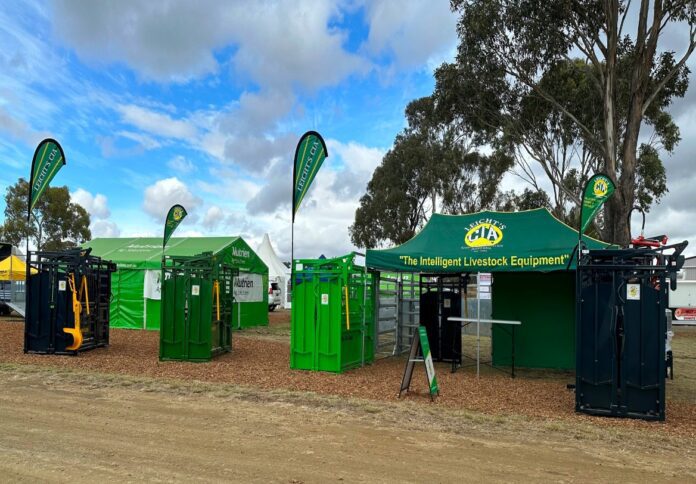
Toowoomba-based cattle equipment manufacturer Leicht’s CIA is set to revolutionise its operations with the adoption of cutting-edge agricultural technology through the Rural Economic Development (RED) Grant.
This move is expected to enhance efficiency, create new employment opportunities, and address current labour challenges in the industry, the government said in a news release.
Mark Leicht, the managing director of Leicht’s CIA, revealed that the company would utilise the RED Grant to invest in specialised laser cutting equipment and an automated welding robot.
The implementation of these technologies aims to streamline the manufacturing process and significantly reduce production times.
“Some of the equipment we will make with the robotic welder include drop-down doors, and those take about 35 minutes to make manually, and we’re hoping they’ll be made in 15 minutes with the robot,” explained Leicht.
Furthermore, the adoption of automation is seen as a strategic move to overcome the prevailing labour shortages in the agricultural sector.
Mark Leicht highlighted, “Labour can be hard to get these days, so we are trying to diversify and set ourselves up for the future. With the freeing up of time, our workers will be able to focus on more structural manufacturing tasks, creating roles in boilermaking and welding.”
The introduction of this advanced technology is projected to create up to six full-time jobs within the local community.
Mark Leicht expressed his gratitude for the RED Grant, stating that it has allowed the company to expedite the adoption of automation by a couple of years.
Leicht’s CIA is among the 24 businesses selected for the fifth round of the RED Grants program, receiving a total funding of $3.9 million.
This round is anticipated to generate up to 215 direct, long-term jobs, contributing to the economic growth of rural and remote Queensland.
The RED Grants program, initiated by the Palaszczuk Government, has provided a total of $13.3 million in funding over five years, supporting 59 successful regional agribusiness projects worth over $52.4 million.
According to the government, these projects are estimated to create more than 2,500 new direct and indirect jobs.
Looking ahead, a sixth round of RED Grants has been earmarked for the 2023-24 financial year, with a focus on supporting Indigenous-owned agribusinesses and projects geared towards low-emission agriculture.
The application process is slated to open later this year.
For more information about the RED Grant scheme, interested parties can visit this website.



















